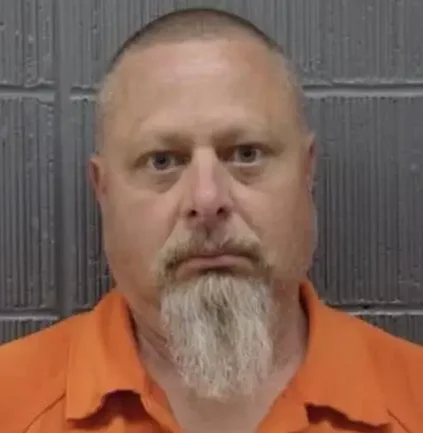
During the fall 2022 semester, five female University of Idaho students lived in a rented off-campus residence in the rural college town of Moscow, Idaho. The three-story home had six bedrooms, two on each floor.There had not been a murder in the city since 2015.
In the early morning of November 13, 2022, four University of Idaho college students were stabbed to death in a shared rental home close to campus. Two female victims—Madison Mogen and Xana Kernodle—lived in the house. They worked at the same local restaurant. The third, Kaylee Goncalves, had recently moved out of the house but returned to attend a nearby party. The fourth victim, Ethan Chapin, was Kernodle’s boyfriend who was sleeping over on the night of the attacks. Two other female roommates also lived at the house; they were not attacked.
Earlier on the evening of November 12, two of the four victims, Chapin and Kernodle, were reportedly at an on-campus party at the nearby Sigma Chi fraternity from 8 p.m. to 9 p.m. They returned home at 1:45 a.m. That evening, the other two victims, Mogen and Goncalves, had gone to The Corner Club, a downtown sports bar at 10 p.m., from which they departed at 1:30 a.m. A livestreamed video on Twitch by The Grub Truck, a food truck four blocks south at Friendship Square (Main and Fourth Streets), showed Mogen and Goncalves at 1:41 a.m., chatting and smiling, getting their food ten minutes later, and leaving to take what the police initially said was an Uber ride home, a trip of about one mile (1.6 km). The police later rephrased their statement to say the ride was provided by a “private party,” arriving home at 1:56 a.m.
According to the surviving roommates the four students were home by 2:00 a.m. Seven unanswered phone calls were made from the phone of Goncalves to her former long-time boyfriend, a fellow student, from 2:26 to 2:52 a.m. and three unanswered calls were made from Mogen’s phone to the same person, from 2:44 to 2:52 a.m. These calls were investigated with the police concluding they did not believe the recipient of those missed calls was involved in the crime. A DoorDash order labeled for Xana was delivered to the house around 4 a.m.
The two surviving roommates had allegedly returned home by 1 a.m. Original reports stated both surviving roommates were in their beds on the ground floor at the time of the killings, were not attacked or held hostage, and that neither woke during the killings. However, the probable cause affidavit for the case said that one surviving roommate stated she was sleeping on the second floor, the same floor as Kernodle and Chapin, before she was awakened by what sounded like Goncalves and her dog. She stated she later heard a roommate saying something to the effect of “there’s someone here.” The roommate stated she believed this was said by Goncalves, although investigators also believe this might have been Kernodle speaking, as a forensic download of her cell phone showed that she was on the app TikTok at 4:12 a.m. The surviving roommate stated she opened her door twice within a short span of time, and the second time, heard what sounded like crying coming from Kernodle’s room and a male voice saying “it’s okay, I’m going to help you.” Security cameras near the home picked up the sound of whimpering, a loud thud, and a dog barking numerous times starting around 4:17 a.m. The surviving roommate allegedly opened her door a third time and saw a figure clad in black clothing and a mask that covered his mouth and nose walking towards her. The man, whom the roommate stated she did not recognize, walked past her and used the sliding glass door to exit. The roommate stated she stood in a “frozen shock phase” and then locked herself in her room.
The four victims were stabbed to death on the second and third floors in the residence, where they had been in bed. The victims were not gagged or restrained and the walls at the scene were spattered with blood. Mogen and Goncalves were found in Mogen’s bedroom, and Kernodle and Chapin were found in Kernodle’s room.
Before the 911 call was made, the surviving roommates reportedly summoned friends to the residence because they believed one of the second-floor victims was unconscious and was not waking up. Someone at the residence called 911 at 11:58 a.m.—over seven hours after the homicides allegedly occurred—on a surviving roommate’s phone to request aid for an “unconscious person.” The identity of the 911 caller was not released, but police confirmed the caller was not considered a suspect. When police arrived, the door to the home was open, there was no sign of forced entry or damage inside the home, and nothing appeared to be missing. The two surviving roommates were on the property when police arrived, as were other friends of the victims.
All four victims were pronounced dead at noon. Detectives stated they believe the killings occurred sometime between 4 a.m. and 4:25 a.m. Upon searching the residence, officers came upon Goncalves’s dog – which she shared with her ex-boyfriend – alive and unharmed on the third floor.
This behavior caused many speculations, questions, doubts, even accusations… People wanted to know whether freeze state lasts for so many hours, whether it’s possible not to hear anything, so much blood and you think someone is unconscious… It is probably very naïve explanation. They were young, loud, used weed, didn’t want police every night, many people came and go, shock. I would ask if Bryan Kohberger knew all these things when he decided to audaciously attack several young people. Did he assume that they can’t be cautious, because they are just students who like to socialize, have fun… How long did he observe their house? He followed them on Instagram, wrote to a girl, maybe Kaylee, and she didn’t replay… Was he enraged? What do we know about Bryan Kohberger?
Four University of Idaho students were killed: Ethan Chapin, 20, of Conway, Washington; Kaylee Goncalves, 21, of Rathdrum, Idaho; Xana Kernodle, 20, of Avondale, Arizona (she later lived in Post Falls, Idaho); and Madison Mogen, 21, of Coeur d’Alene, Idaho. Chapin was a freshman, Kernodle was a junior, and Goncalves and Mogen were both seniors.
The investigation of the stabbings was led by the Moscow Police Department (MPD) and supported by the Idaho State Police (ISP) and the Federal Bureau of Investigation (FBI). Autopsies on the four victims were performed in Spokane, Washington. The Latah County coroner stated the victims all appeared to have been stabbed multiple times with a large knife. At least one victim (with what were apparently defensive stab wounds on her hands) and possibly more appear to have tried to fend off their attacker, and the victims may have been attacked while sleeping in their beds. Fatal wounds were in the chest and upper body. None showed signs of sexual assault.
A surviving roommate who reportedly saw the suspect described him as a male stranger around 5 feet 10 inches, and “not very muscular, but athletically built with bushy eyebrows”. Police stated that they believed it was “a targeted attack but have not concluded if the target was the residence or its occupants.” A camera in the area captured video of a white or light colored Elantra around the time of the murders, which investigators noticed had made multiple passes along the same route near the residence. Another surveillance recording obtained by investigators also showed an Elantra passing by the victims’ home three times, beginning around 3:29 a.m. At 4:04 a.m., the Elantra returned to the home for a fourth time. At 4:20 a.m., the car was seen speeding away from the victims’ neighborhood. Investigators obtained cell phone data that showed that Kohberger’s phone stopped connecting to the network around 2:47 a.m. in Pullman on November 13 before reconnecting around 4:48 a.m. near Blaine, Idaho, which is near U.S. Highway 95 south of Moscow. Cell phone data also show that his phone utilized a cell tower near the victims’ residence around 9 a.m. on November 13, approximately five hours after the killings. Police also obtained data that indicated that his phone pinged from the cell phone tower nearest the residence at least twelve times between June 2022 and November 13. Investigators had obtained three unidentified male DNA samples from the crime scene including DNA found on a tan leather knife sheath on Mogen’s bed. Investigators recovered trash from outside Kohberger’s family’s home in Pennsylvania for DNA, which they stated was consistent with being the source of the DNA from the sheath. Before the arrest, investigators monitored Kohberger outside of his parents’ Pennsylvania home. He was allegedly seen multiple times wearing surgical gloves and observed putting trash bags inside of the garbage can of a neighbor. The items were sent to the Idaho State Lab for testing. Authorities also said Kohberger had “cleaned his car, inside and outside, not missing an inch (of area).” According to authorities, a search of the home where Kohberger was arrested revealed a knife, a pistol, and a black face mask, as well as ID cards inside a glove inside a box. Kohberger was taken into custody by an FBI SWAT team and Pennsylvania State Police on December 30 at the home of his parents in Monroe County, Pennsylvania. At the time of his arrest, authorities allegedly found Kohberger in the kitchen dressed in a shirt and shorts, while wearing examination gloves and putting trash into separate zip-lock baggies.
Bryan Kohberger

Bryan Christopher Kohberger was born on November 21 1994, in Albrightsville, Pennsylvania. After graduating from Pleasant Valley High School in 2013, he attended Monroe Career and Technical Institute in Bartonsville but dropped out a year later. Kohberger later attended Northampton Community College’s campus in Tannersville, where he earned an associate degree in psychology in 2018. After graduating from Northampton, he worked as a security guard for the Pleasant Valley School District, the same school district where his father previously worked as a maintenance worker for many years and his mother for a time as a substitute teacher. He received a B.A. in 2020 and an M.A. in 2022 in Criminal Justice from DeSales University, in Center Valley, Pennsylvania.


He once bragged about his boxing routine. It is sure that he is a militant vegan.
Kohberger’s friend, Bree, says she met Bryan at a party when they attended Pleasant Valley High School. She asked “48 Hours” not to use her last name.


She says they bonded over their love of the outdoors. Bree: I don’t necessarily remember the conversations, but you definitely remember how someone makes you feel. … I just remember feeling OK — I was just with a friend. Just felt natural.
In the summer of 2022, Kohberger moved to Washington state to pursue a PhD at Washington State University in Pullman; its campus is less than eight miles (13 km) west of Moscow. At the time of the killings, he was a doctoral student in criminology and had completed his first semester there nine days before his arrest. Kohberger had been a teaching assistant at WSU, and less than two weeks before the murders, faculty members met with him to discuss growing concerns about his behavior and conduct. Kohberger was terminated from his teaching assistant role on December 19 with the decision being based on “his unsatisfactory performance as a teaching assistant, including his failure to meet the ‘norms of professional behavior’ in his interactions with the faculty.”
In high school he was chubby and was allegedly teased by girls. He became addicted to heroin. He wrote about ‘’white snow’’, but actually he described his experience of depersonalization and derealization. He lacks social skills as he is on a spectrum (autism), especially with women and he developed very harsh approach towards women. That was a reason for termination from his teaching assistant role. He was strict only towards women and arrogant as they stated. We may assume that he didn’t have a girlfriend, so many speculate about Incel. He did have, indeed, some relationship with women. His acquaintance had a burglary or she suspected so, and Bryan helped her to install cameras. In restaurants women complained about his behavior. He stared, didn’t read well social cues. His appearance has changed and he was thin as he was really sick.

On May 17, 2023, the Latah County District Court announced that Kohberger was indicted by a grand jury on five charges: four counts of first degree murder and one count of felony burglary. A preliminary probable cause hearing scheduled for June 26 was canceled after the indictment. In May 2023, Kohberger refused to enter a plea during his arraignment. His attorney said that he was “standing silent” on the charges. The judge entered a ‘not guilty’ plea for him.
On June 26, the Latah County Prosecutor’s office announced they were seeking the death penalty given the alleged aggravating circumstances of the first-degree murder charges. Kohberger is being held in the Latah County Jail and has been denied bond. He has pleaded not guilty to all charges. In January 2024, the judge hearing the case granted the defense access under seal the results of the investigative genetic genealogy testing which used a “touch” sample from the sheath of a knife left behind at the crime scene which first led to the investigation of Kohberger.
The trial is scheduled to begin on June 2 of next year, 2025. The next upcoming hearing on August 29 is about the defense’s motion to change the location of the trial, which is set to be held in Latah County.
“Bryan Kohberger cannot receive a fair trial in Latah County as protected by his rights under both the United States and Idaho Constitutions because of the pervasive, inflammatory, often inaccurate and highly prejudicial publicity,” public defender Anne Taylor argued in the document. His alibi is that he was driving alone as he had done many times before, watching stars.
The defense team conducted a phone survey of potential jurors to determine if they can act impartially. One question asked during the survey was “What rumors or theories, if any, have you heard about these murders, Bryan Kohberger, or the victims?”
The trial against Bryan Kohberger will be moved to the county surrounding the state capital of Boise, the Idaho Supreme Court ruled Thursday. District Judge Steve Hippler will take on the case in Ada County, the court said.
Kohberger’s attorneys had fought to strike the death penalty from the high-profile murder case arguing that the state has “no real means” of using capital punishment in the event of a guilty verdict.
In court filings last week, Kohberger’s lawyers said that forcing inmates to wait for years on death row is “dehumanizing” and the execution methods available for prisoners in Idaho – including an “inhumane” firing squad – are both “arbitrary” and “unconstitutional” forms of punishment.
The defense team also argued Idaho’s death penalty laws violate an international treaty banning the torture of prisoners.
Ada County Judge Steven Hippler handed down his ruling, denying 12 motions filed by the 30-year-old’s defense team and finding that “there is no basis to depart from settled law upholding Idaho’s death penalty statute as constitutional.”
The death penalty is “consistent with contemporary standards of decency,” the judge added.
In a series of highly-technical filings, prosecutors said that the searches of Kohberger’s person and belongings, including his car, phone records, Apple accounts and homes, were appropriate. They noted the “burden of proof is on the defendant to show that the search was invalid.”
A filing posted totaled more than 160 pages and included the legal justification for blocking a variety of materials that Kohberger’s lawyers say were improperly obtained, the Idaho Statesman reported. Some of the evidence defense lawyers want suppressed is Kohberger’s genetic information, which they argue was “illegally gathered by law enforcement,” citing the Fourth Amendment, which protects against unreasonable searches and seizures, according to the newspaper. Bryan Kohberger’s public defender, Anne Taylor, argued that the manner in which the FBI collected her client’s DNA violated his privacy.

